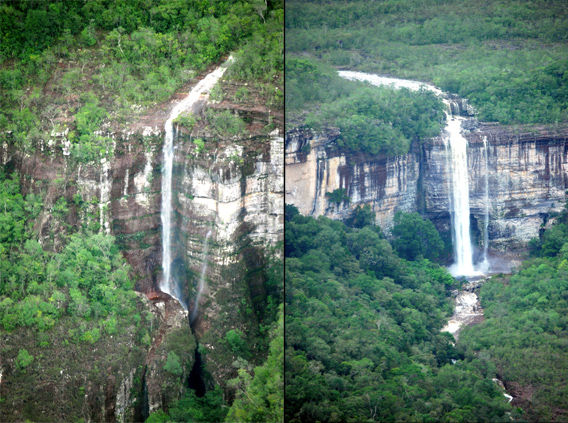
Colombian Park Could Expand to Include Isolated Tribes

The Colombian government may double the size of an enormous, diverse reserve, according to news reports. The new park would incorporate the lands of two tribes that have little or no contact with the outside world.
The Chiribiquete National Park is home to a dazzling array of plant and animal life, including 300 bird species, seven monkey species and 300 butterfly species, according to mongabay.com, an environmental news website.
The plan, formulated last year by the government, would more than double the park's area, to a total of 11,580 square miles (30,000 square kilometers) of pristine rain forest, an area larger than the state of Massachusetts.
"The plan to expand Chiribiquete is great for Colombia," said Liliana Madrigal of the Amazon Conservation Team, a nonprofit group that partners with indigenous groups in Colombia to preserve rain forests. "Chiribiquete already protects an enormous wealth of flora and fauna, but its enlargement now also will facilitate the protection of voluntarily isolated indigenous peoples that are believed to inhabit the park and help ensure their right to remain uncontacted," Madrigal told mongabay.
The park is known for its unusual rock formations and stunning waterfalls. The new park would include at least 32 cave painting sites with about 250,000 drawings, according to the website.
The expansion announcement comes a year after passage of a decree that requires the government to set aside land for voluntarily isolated indigenous groups, and the plan has been approved by seven tribal communities that live near Chiribiquete, mongabay reported. The Colombian Ministry of Environment is now negotiating with the Ministry of Mines to figure out what to do with land scheduled for oil exploration; a final decision is expected by March, according to the website.
Reach Douglas Main at dmain@techmedianetwork.com. Follow him on Twitter @Douglas_Main. Follow OurAmazingPlanet on Twitter @OAPlanet. We're also on Facebook and Google+.
Get the world’s most fascinating discoveries delivered straight to your inbox.
 Live Science Plus
Live Science Plus






